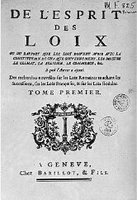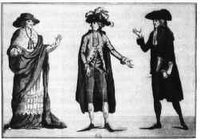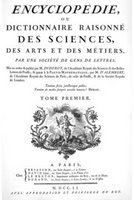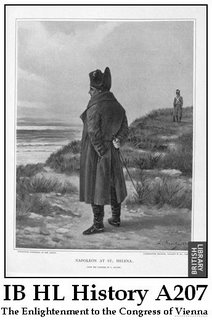Please read the following sections in Chapter Five and answer the corresponding questions.
Sections: The Impact of Scientific Thought and The Spread of New Knowledge, pages 105-110. Take notes and read the entry for "Philosopher" from the Encyclopedia of Diderot and d'Alembert found through the "browse" option. The link for this text is found below and do not worry about understanding all the concepts and words in the entry, but read it so that you may gain some insight into how the philosophes saw themselves.
 Section: Ideas that Changed the World, pages 110-118.
Section: Ideas that Changed the World, pages 110-118.Take notes and compare and contrast the ideas and beliefs of the three main thinkers: Montesquieu, Voltaire, and Rousseau. (You may wish to do this is chart form.) You may also wish to consider the question - "Can ideas really change the world?"
Section: Enlightened Despotism, pages 118-124.Take notes and answer the question: "What did it mean to be an enlightened despot?"
The image is a photograph of the cover of Montesquieu's Spirit of the Laws, a translation of which may be found through this
link.




